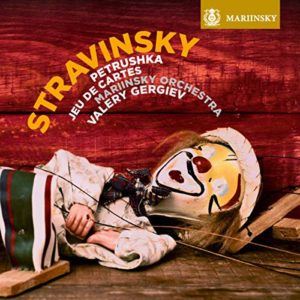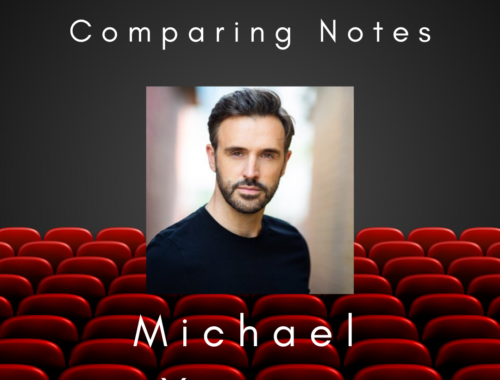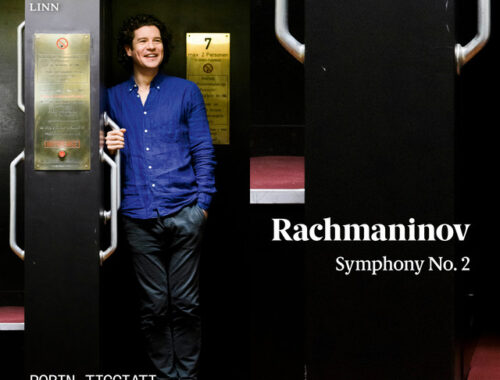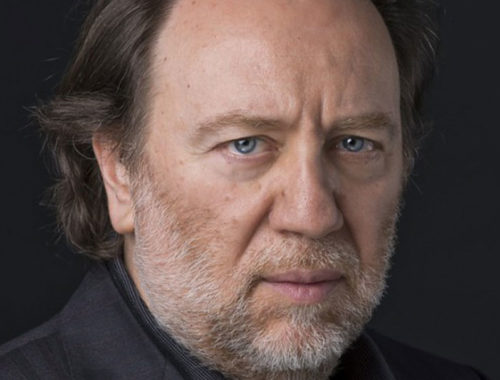GRAMOPHONE Review: Stravinsky Petrushka/Jeu de Cartes – Mariinsky Orchestra/Gergiev
 Bold local colours are pretty much a given for Petrushka with this orchestra and this conductor in this location. But the vividness and ‘authenticity’ (not a word I generally use) of the characterisation took even me a little by surprise. Frankly it’s been a while since a Gergiev performance captured my imagination. Barring the very opening pages where a careless and slightly inexplicable rhythmic sluggishness intrudes (exacerbated by the thicker, more elaborate, scoring of this original 1911 version) there isn’t a detail that doesn’t pop spontaneously (or so it seems) from the page. Gergiev as puppeteer is so mindful of the music’s folksy roots that the whole has a coarse-cut immediacy that is highly distinctive. You just have to get past the opening pages.
Bold local colours are pretty much a given for Petrushka with this orchestra and this conductor in this location. But the vividness and ‘authenticity’ (not a word I generally use) of the characterisation took even me a little by surprise. Frankly it’s been a while since a Gergiev performance captured my imagination. Barring the very opening pages where a careless and slightly inexplicable rhythmic sluggishness intrudes (exacerbated by the thicker, more elaborate, scoring of this original 1911 version) there isn’t a detail that doesn’t pop spontaneously (or so it seems) from the page. Gergiev as puppeteer is so mindful of the music’s folksy roots that the whole has a coarse-cut immediacy that is highly distinctive. You just have to get past the opening pages.
The ‘backstage’ tableaux are especially affecting in their intimacy, something Gergiev signals quite magically from the moment the showman’s wistful flute first introduces us to his puppets. An atmosphere of enchantment descends from that point onwards. The Blackamoor’s clumsy attempts to woo the Ballerina – not least his lop-sided attempts to partner her in a waltz – would be charming if they weren’t so sinister. The forlorn Petrushka’s anguish (those frantic trumpet fanfares) feels very real.
And then we’re back amongst the thronging crowds (and it really feels that way) of St Petersburg’s Shrovetide Fair, the 1911 orchestration humming in a way that the sharper 1947 revision can’t quite match. The dances here have a red-blooded rusticity about them, not least Gergiev’s terrifically exuberant way with the Coachmen’s Dance – and the lumbering bass-heavy episode with the dancing bear is vivid as can be, heavily redolent of Mussorgsky’s Ox Cart in ‘Pictures’. As I say, broad strokes, but touchingly human, too, in the moment when the Showman vainly tries to convince his crowd – and us – that Petrushka is ‘only a puppet’.
Switching to neo-classical world of Jeu de Cartes (recorded a few years earlier in 2009) should, I think, convey more of a ‘shock of the new’ after Petrushka and I have to say that I was conscious throughout of the angular nature of this music requiring cleaner, sharper lines in performance. But Gergiev attends to it much as he does Petrushka, slightly over-egging the characterisation and, to my mind, applying too much in the way of nuance and rubato than is appropriate in this piece. Stravinsky’s dispassionate stylisation and straight-faced use of self-quotation (to say nothing of Rossini’s Barber) should have a bracing air of detachment about it.
Thoroughly engaging Petrushka, though.
You May Also Like

COMPARING NOTES: Michael Xavier in Conversation
17/06/2020
GRAMOPHONE Review: Rachmaninov Symphony No.2 – Deutsches Symphonie-Orchester Berlin/Ticciati
10/11/2021

